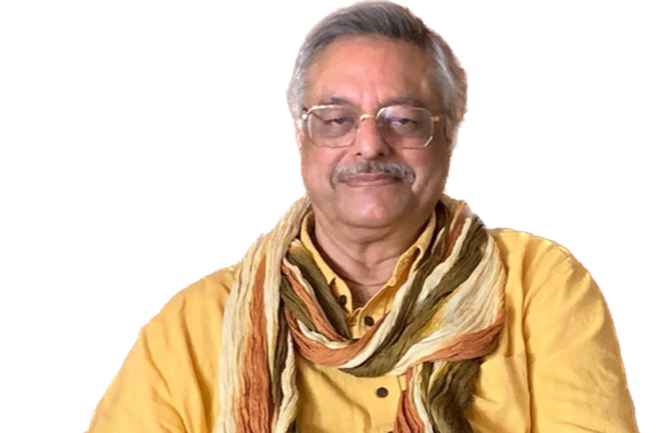Ram Chandra Kak was the last Pandit Prime Minister of the princely state of Kashmir and was arrested by Maharaja Hari Singh because he resigned his post on the eve of Independence. In an email interview, Siddharth Kak of ‘Surabhi’ fame, talks about Love, Exile, Redemption: The Saga of Kashmir’s Last Pandit Prime Minister and his English Wife, a biographical memoir he co-authored with Lila Kak Bhan. The English wife is Margaret Mary Allcock (also known as Bended), mother of Lila Kak Bhan, and step grandmother of Siddharth Kak. RCK, or Bhaiji, and Kak’s grandfather, may have been the Prime Minister, but is a forgotten figure, and the authors wrote the book, after researching her letters, diaries and his unpublished memoirs, to keep alive his memory. Edited excerpts:

How is it that Ram Chandra Kak’s name is unheard of in Indian history and we know only about Maharaja Hari Singh?
My grandfather, Pandit Ram Chandra Kak, known to us as Bhaiji, was not politically inclined. He was a very private person. He did not join any caucus or palace politics to further his career. A Sanskrit and Persian scholar and archaeologist by profession, he did not seek publicity. As Lila Kak Bhan reiterates, Bhaiji always believed that he had nothing to prove.
In any case, Maharaja Hari Singh was the head of the princely state of Jammu & Kashmir and all action was taken in his name, even comparatively minor matters of transfers and promotions.
On Bhaiji’s return to Kashmir in 1959, the situation was not as conducive politically as it was in the Nehruvian era.

Why were your grandfather’s memoirs never published?
Once my grandfather was exiled and subsequently returned after many years to his beloved Kashmir, he built his life anew as a gentleman farmer. As children we spent the best years of our lives in the magical hill stations of Kasauli and Kashmir with our daily walks together. My grandfather’s homestead in the foothills surrounding the Dal Lake had a verdant spring of its own, which still flows. It gave my grandparents great happiness to interact with the people of Kashmir.
Bhaiji was not interested in publishing his memoirs, not only because he was not politically inclined, but also because he was concerned that his children and family should not be victimised, since the times were not favourable.

In the book, you say the princely states had a different approach to the exit of the British Empire in the subcontinent; some sought the creation of an Indian empire with Lahore as its capital. Did this include princely states in South India too?
I cannot speak for the southern states, nor is there any indication of any such alliance in Bhaiji’s memoirs. The concept of an Indian state with Lahore as its capital was a dream of Maharaja Hari Singh and his wife, egged on by palace intrigues, including the Rasputin-like figure of Swami Sant Dev, who led Maharaja Hari Singh to believe that he was destined to reign over an extended state, called Dogristan, which would extend from Lahore to the Kangra Valley and include the existing Jammu and Kashmir regions.

What was your grandfather’s take on Maharaja Hari Singh’s ambition to become ‘emperor’ after independence?
I think ‘emperor’ is an exaggerated designation. Perhaps the Maharaja saw himself as a ruler of an extended region. Bhaiji was astonished at the Maharaja’s naivete in believing that the rest of India would capitulate so easily to his ambitions. My grandfather did not believe that those accelerating the British withdrawal from India would allow another occupation of the land.
Bhaiji drew the Maharaja aside and tried to explain to him the consequences of his actions, but the Maharaja was convinced of his destiny. He sacrificed his honest Prime Minister for this imagined destiny. Sure enough, far from becoming the great ruler he imagined he would be, he was forced to flee Kashmir permanently. Due to his ill-advised actions, instead of possibly continuing as head of the State of Jammu and Kashmir, he was rendered homeless some months later and ended his life in exile.

Did the kingdom of Kashmir include Buddhists, and was Ladakh a part of it under Maharaja Hari Singh?
Ladakh was a part of Maharaja Hari Singh’s kingdom, and Bhaiji mentions the Buddhists in his memoirs, which being quite extensive were edited, keeping in mind that the narrative focus was personal and not historical.
Love, Exile, Redemption: The Saga of Kashmir’s Last Pandit Prime Minister and his English Wife; Siddharth Kak, Lila Kak Bhan, Rupa, ₹695.
The interviewer is a writer and poet.







